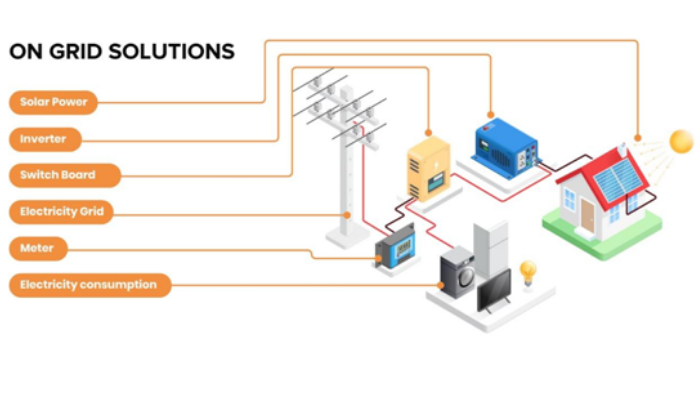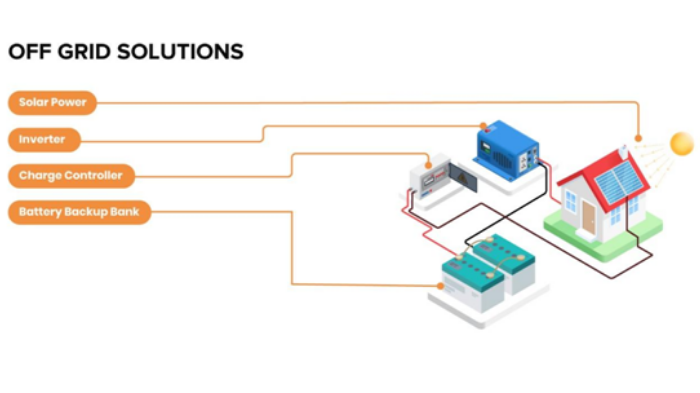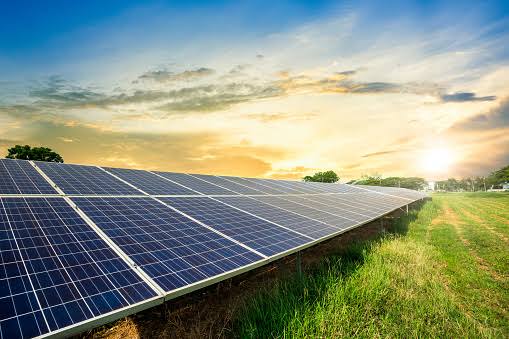Much is said about solar energy and photovoltaic systems that produce electricity through sunlight in homes. See below, what is the difference between solar energy on grid and off grid . Although their primary objective is the same, the other processes are significant differences.
Photovoltaic system on grid and off grid
The photovoltaic system is the technology used to generate electrical energy from the radiation of the sun’s rays. This is possible thanks to a physical phenomenon called the photovoltaic effect. It consists of the appearance of an electrical voltage in a semiconductor material, such as silicon, when exposed to light.
The photovoltaic system can work in two ways: on grid, when it is connected to the public electrical distribution network, and off grid, when it operates autonomously. It is a simple expression in English that defines whether or not it is connected to the utility’s electrical network.
solar energy on grid

The on-grid system is used where there is a connection to the concessionaire’s network, for example in the urban environment. It can be installed in homes and businesses of all sizes. The main advantage of this system in Brazil is the compensation of electricity, which is already regulated by law.
- The electric energy generated is used by the property itself and the surplus is sent to the concessionaire, which grants credits to the consumer, as a compensation force for the generation of energy;
- The credits are converted into the electricity bill and can be used in up to 60 months, in rainy and cloudy periods, the consumer will get electricity from the common network and will pay nothing or much less;
- It is possible to transfer the credit to another property, as long as it is registered in the same CPF;
- Credits can be used at night or at times when the property’s energy demand is greater than that produced by the system, for example, the use of air conditioning in the summer.
off grid solar energy

The off-grid system is completely autonomous, that is, it is not integrated into the “public” electricity grid. It is ideal for locations far from the grid or without access to power distribution, such as rural areas, in both productive and residential environments.
The energy produced is stored in batteries, ensuring supply during the night or in periods without generation or with variation in energy production, as can occur on cloudy days. Thus, it gives total energy autonomy to the property.
Due to its autonomous characteristic, the system is often used in public buildings or buildings that cannot have their energy interrupted without loss, in hospitals the off-grid solar energy combo and emergency generator would work as protection complements.
Other examples of common use are:
- 24h vehicle monitoring systems for cargo carriers;
- Outdoor radios for internet providers, public Wi-Fi;
- recreational vehicles such as food trucks;
- Cameras and monitoring and security equipment in places such as squares, streets and farms, which need energy autonomy so as not to suffer blackouts.
Benefits of solar energy
It is possible to point out several benefits of solar energy, besides the financial one, of course. Choosing this investment brings all “individual” autonomy and social benefit to the region.
Economic
The production of energy with photovoltaic panels generates savings of up to 95% on the electricity bill, freeing up budget for other areas, such as home renovations, residents’ studies and leisure.
Sustainability
As a clean and renewable energy, it is a solution that neither pollutes nor affects the environment, reducing impacts, especially the activation of thermoelectric plants in periods of water scarcity.
Medium and long term investment
There are incentives to purchase solar energy systems, such as specific credit lines and financing, and tax reductions, such as IPTU Verde. Properties with solar energy are more valued, favoring later resale.
Return on investment (ROI)
It is considered fast, depending on consumption, it can take an average of four years for the equipment to reset the investment and start to show returns.
Product longevity
It only takes a cleaning of the panels every 6 months to 1 year, besides that, depending on the module, it reaches 25 years with approximately 80% efficiency. Investment paid in 4 years with another 21 years of economy and profitability. Whether solar energy is on grid or off grid , the benefits are considerable.


It’s been forever since Australia is facing the critical issue of energy price hikes. In order to aid that wound, the government is also trying to compensate with several schemes, encouraging common people to switch to renewable energy sources. But there’s always a new level of reach to up our savings; getting solar batteries is one of them. They help you store energy from the grid or from your renewable sources so that you can enjoy higher savings at a lower price point & reduce your carbon footprint simultaneously.